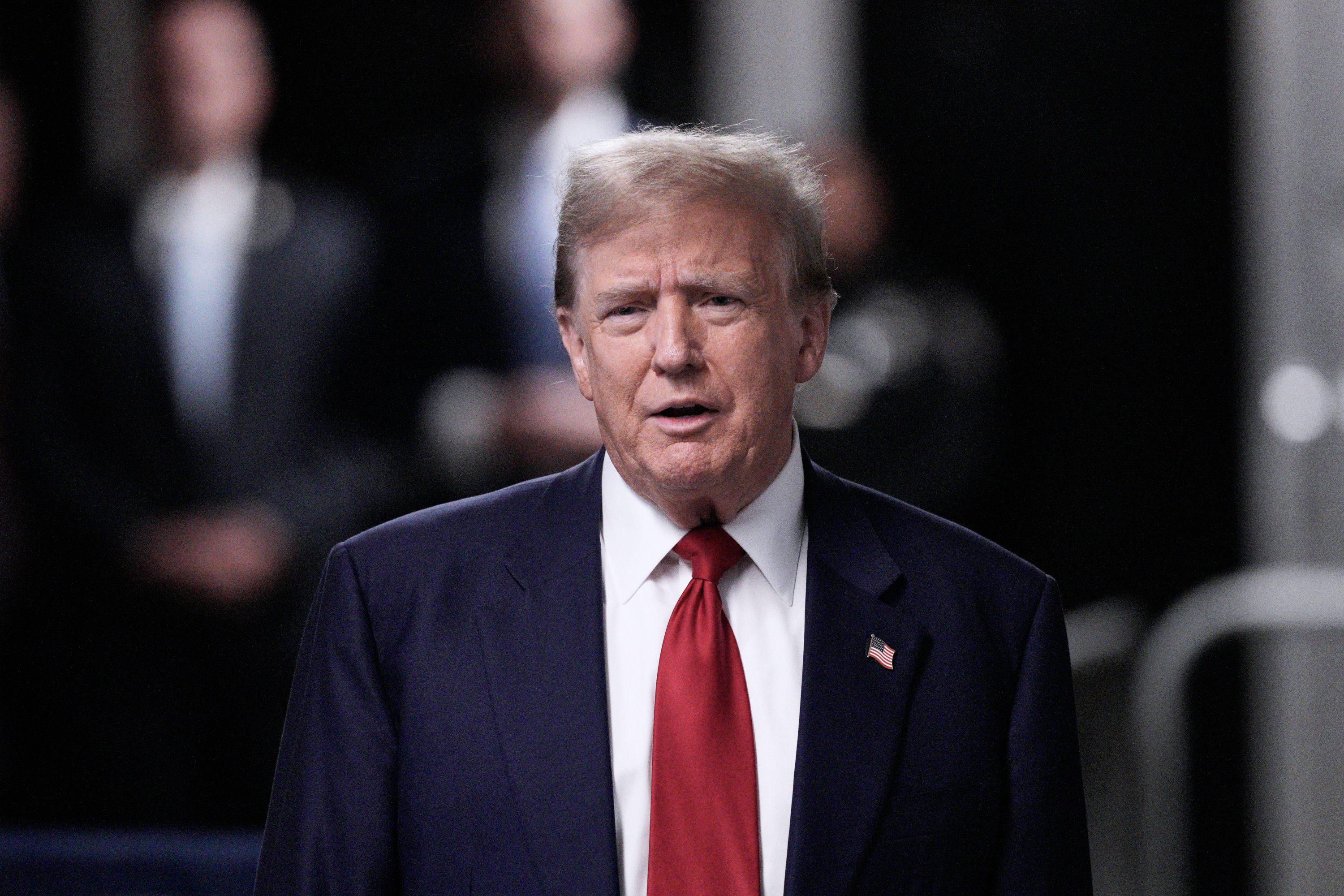For the Biden administration, an Israel-Saudi normalization accord is the diplomatic equivalent of catching a white whale on the high seas. It's of such historical importance that U.S. officials were willing to give away the store by offering concrete security assurances to Saudi Arabia and assistance with Riyadh's nuclear energy aspirations. Saudi Crown Prince Mohammed bin Salman (MBS) has long been open to establishing formal diplomatic relations with Israel, going so far as to call the Jewish state a "potential ally." For MBS, striking a deal with Israel could kill two birds with one stone: extracting security concessions from the Americans and giving the Saudis a key partner in its decades-long rivalry with Iran.
Then came Oct. 7. Hamas' terrorist attack in Southern Israel, and Israel's war against Hamas in Gaza, has upended the Biden administration's plans. With Gaza now looking like a moonscape after six months of fighting, the Saudis are no longer as eager to sign a normalization agreement as they were back in 2023.
The price for a Saudi signature, already high before the war, is now even higher. Whereas the Saudis probably could have lived with a few token Israeli concessions to the Palestinians last year (perhaps in the way of handing over additional chunks of the West Bank to Palestinian Authority control), they are now demanding far more on the Palestinian file. Today, nothing short of an independent Palestinian state is acceptable. "The Kingdom has communicated its firm position to the U.S. administration that there will be no diplomatic relations with Israel unless an independent Palestinian state is recognized on the 1967 borders with East Jerusalem as its capital," the Saudi Foreign Ministry wrote in a statement in early February. As far as we can tell, that position hasn't changed in the weeks since.

Right now, it's hard to see how President Joe Biden will be able to cobble together the Israel-Saudi normalization agreement he covets. On the question of the Palestinians at least, the maximum of what Israel is willing to give falls far short of the minimum Saudi Arabia is willing to accept. Ideally, the two parties would enter a negotiation and settle somewhere in the middle. But the ideal is rarely possible in the Middle East. There are too many factors, both political and emotional, dragging the process down.
The Saudis, for one thing, are highly attuned to the broader sentiment of the Middle East. The House of Saud may run Saudi Arabia like a family enterprise, but that doesn't mean they can afford to dismiss the view of the average commoner. According to a poll conducted from Nov. 14-Dec. 6, 2023, of Saudis by the Washington Institute for Near East Policy, 96 percent of respondents agreed with the notion that Arab-majority governments should cut all ties with Israel in response to its conduct in Gaza. Granted, this is just one survey. But it appears like the region writ-large is treading away from Israel, not toward it.
MBS sees where the wind is blowing. Yes, the crown prince takes risks and seems to love jettisoning his uncles and much older cousins, who have a more traditional view of what Saudi Arabia should doing both domestically and overseas. But even MBS, who didn't seem to care too much for the Palestinians until Israel began dropping bombs on Gaza six months ago, isn't bold enough to give Israeli Prime Minister Benjamin Netanyahu a huge political win under the present circumstances.
Then there's the other side. Netanyahu, who got his start on the national stage by opposing the Oslo Accords, wasn't a believer in a Palestinian state to begin with. Sure, he went through the motions when he delivered a famous speech in 2009 supporting it in theory, but his endorsement was littered with so many strict conditions—Israel keeping the entirety of Jerusalem as its capital and controlling all of the airspace—that any peace talks were likely to fall apart (which they did).
A two-state solution, with Israel and a state of Palestine living side by side in peace and security, is still the U.S. policy objective. But the Americans might as well be shouting in the wind. Netanyahu isn't interested in acceding to that formulation and considers such a thing a direct national security threat to the state of Israel. Netanyahu isn't the only one, by the way. Oct. 7 changed the paradigm. The consensus now that even broaching the idea of peace talks with the Palestinians is a waste of time. Others on the extreme nationalist fringe—some of whom hold cabinet positions in Netanyahu's government—deride a Palestinian state as a reward for terrorism.
Despite all the obstacles, the Biden administration still believes the juice of an Israel-Saudi accord is worth the squeeze. During a fundraiser last week with former Presidents Bill Clinton and Barack Obama, Biden insisted that Saudi Arabia and other Arab-majority states were "prepared to fully recognize Israel." Jake Sullivan, Biden's national security adviser, was scheduled to travel to Riyadh this week to move the process down the field (the trip was postponed after Sullivan suffered a cracked rib).
But given the current strategic environment, one must ask why the U.S. is putting so much diplomatic capital into something that has so little chance of success.
Daniel R. DePetris is a fellow at Defense Priorities and a syndicated foreign affairs columnist at the Chicago Tribune.
The views expressed in this article are the writer's own.
Uncommon Knowledge
Newsweek is committed to challenging conventional wisdom and finding connections in the search for common ground.
Newsweek is committed to challenging conventional wisdom and finding connections in the search for common ground.
About the writer
To read how Newsweek uses AI as a newsroom tool, Click here.








